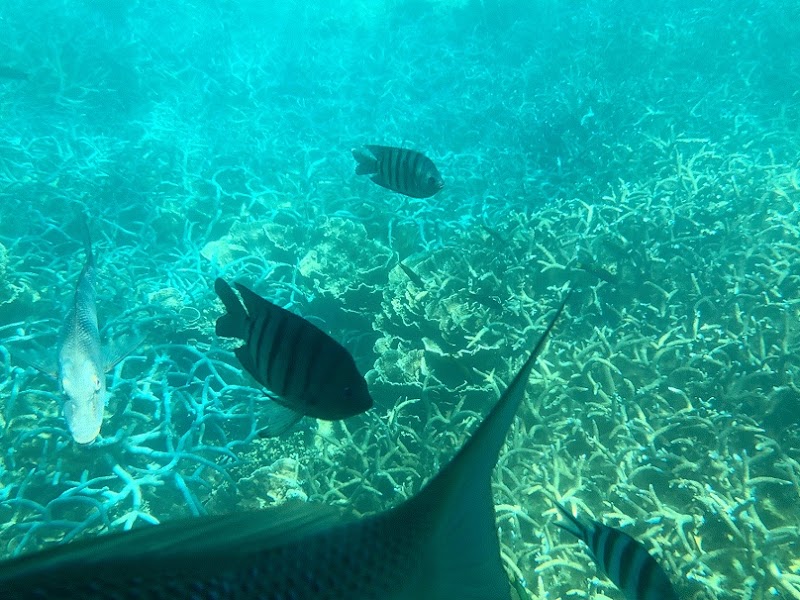
Swimming With Giants: The Whale Shark Festival in Coral Bay
Each year from June to August, Coral Bay welcomes the Whale Shark Festival, where adventurers can swim alongside the ocean’s largest fish. This practical guide prepares you for an unforgettable encounter grounded in respect and responsible tourism on Western Australia's Ningaloo Coast.
Book Tours Early
Tour spots fill quickly during peak season, especially July. Reserve your place well in advance to avoid disappointment.
Wear Reef-Safe Sunscreen
Protect your skin and the delicate marine ecosystem by choosing non-toxic, reef-friendly sunscreens.
Use Waterproof Gear
Bring waterproof bags and camera equipment to keep your belongings dry and capture underwater shots safely.
Timing Your Swim
Morning swims often mean calmer seas and better visibility; plan excursions accordingly to enhance your experience.
Swimming With Giants: The Whale Shark Festival in Coral Bay
From June to August, Coral Bay on Western Australia's Ningaloo Coast becomes a gateway to one of the ocean's most extraordinary encounters: the Whale Shark Festival. These gentle behemoths — reaching lengths up to 12 meters — return annually in numbers to feed on plankton-rich waters, turning the bay into a living classroom and adventure hub. The festival invites travelers to witness and swim alongside these quietly commanding creatures, a rare privilege wrapped in an experience grounded by respect for their natural rhythms.
Coral Bay’s turquoise waters don’t just beckon for a swim; they invite a conversation with the sea. The whale sharks appear near the shallows, their mottled skin catching light as they glide steadily, unhurried and fiercely themselves. The ocean currents push visitors forward, urging cautious camaraderie with these ancient travelers.
Preparation is key to making the most of this festival. Tours operate daily during peak season, offering guided swims typically in groups of six to ensure minimal disturbance. Each excursion lasts around three hours, balancing excitement with careful timing to observe feeding behavior during optimal plankton blooms.
The entry point to these adventures is straightforward—most tours launch from Coral Bay town. Bookings should be arranged in advance, especially in July, when visitor numbers peak. Early morning departures not only catch calmer seas but also maximize visibility underwater.
Aside from whale sharks, the bay hosts an abundant reef ecosystem. Snorkelers find themselves darting alongside turtles, manta rays, and colorful fish, all thriving in the clear, temperate waters. On land, the rugged coastline holds quiet spots for reflection and photography, framed by low dunes and windswept shrubs.
Respect for the environment shapes every aspect of the festival. Participants receive briefings on swim etiquette: no touching, no flash photography, maintaining distance—these rules protect the sharks’ well-being.
For those considering a visit, practical tips include bringing reef-safe sunscreen, lightweight swimwear, and waterproof cameras to capture the moment responsibly. Footwear for Coral Bay town and coastal paths should be sturdy yet comfortable—sand and gravel mix underfoot, with some uneven surfaces.
If the mind craves more than just the swim, the Coral Bay community offers local eateries featuring fresh seafood, and small galleries showcasing Indigenous art. The town itself is small but welcoming, providing many chances to recover and recharge before your next ocean session.
In all, Whale Shark Festival is an adventure grounded firmly in the realities of ocean ecology and human responsibility. It’s less about conquering nature and more about joining a fleeting, shared space with beings that have navigated Earth’s waters far longer than we have. This festival challenges visitors not just to see giants, but to understand their place alongside them.
Nearby Trips
All Adventures
Boat Charters
Water Activities
Adventures near Coral Bay, Western Australia
Discover the unique and memorable adventures that make Coral Bay, Western Australia special.
Frequently Asked Questions
How close can I get to the whale sharks during the festival?
Tour operators typically enforce regulations that maintain a minimum distance of 3 meters from the whale sharks to ensure their safety and comfort, so close but respectful proximity is guaranteed.
Are the waters safe for inexperienced swimmers?
Swimmers should be comfortable in open water and able to float with a snorkel. Guides accompany all groups, and flotation devices are available for those who need extra support.
What other wildlife can I expect to see during the festival?
Besides whale sharks, the bay provides encounters with manta rays, sea turtles, various tropical fish, and often humpback whales migrating past further offshore.
Is the Whale Shark Festival eco-friendly?
Yes, the festival operates under strict conservation guidelines that include limiting group sizes, avoiding crowds around individual sharks, and educating visitors on the importance of preserving marine habitats.
What cultural experiences are available in Coral Bay?
Visitors can explore Indigenous Australian art galleries featuring local crafts and stories linked to the Ningaloo Coast, alongside community-led talks about traditional sea stewardship.
Can I visit Coral Bay if I’m traveling without prior bookings?
While you can visit Coral Bay anytime, securing whale shark tour bookings before arriving is highly recommended, especially during June to August, to guarantee availability.
Recommended Gear
Reef-safe Sunscreen
Protect your skin from UV rays without harming reef ecosystems.
Snorkel and Mask
Essential for clear underwater viewing during whale shark swims.
Waterproof Camera
Capture memory-making moments while staying safe from water damage.
Lightweight Footwear
Sturdy sandals or shoes for walking Coral Bay’s sandy and gravelly shorelines.
Local Insights
Hidden Gems
- "Osprey Bay lookout - offers panoramic coastal views few tourists visit"
- "Mauds Landing - a quieter snorkeling spot away from main tours"
Wildlife
- "Humpback whales migrating offshore"
- "Rare sightings of dugongs and bottlenose dolphins"
- "Coral reef fish colonies including parrotfish and butterflyfish"
History
"Coral Bay has long been home to the Thalandji people, traditional custodians who hold deep connections with the sea and have cultural narratives tied closely to the whale sharks and surrounding waters."
